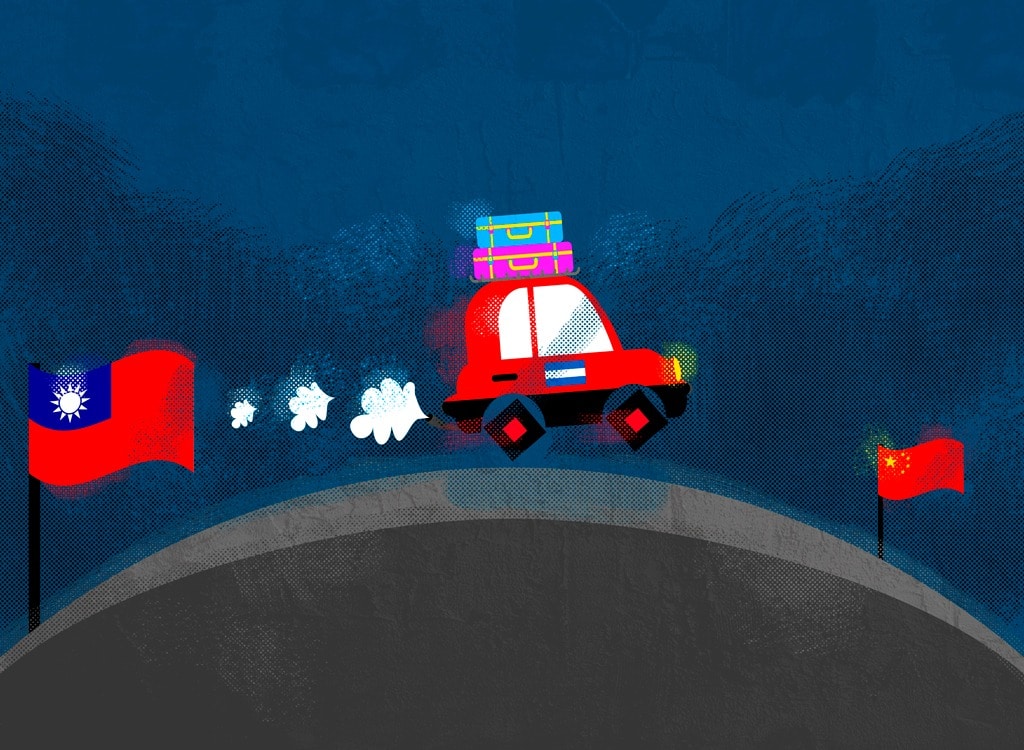The Daniel Ortega’s severance of relations with Taiwan, and its subsequent reestablishment with China, served to further advance the geopolitical agenda of the vast Asian nation, although it is in doubt that it will serve much to the geostrategic interests of Ortega, according to the opinion of three experts consulted by CONFIDENTIAL.
The December 9 announcement took many by surprise, sparking a sea of comments about the deviousness of a decision that hit a partner as staunch as Taiwan, while explaining how unlikely it is that China will reward the decision. of Ortega, or that will replace the United States – or even Taiwan – as a trading partner. Not for lack of economic muscle, but of interest.
“We must put into context what are the interests that China pursues in Central America,” invites the Salvadoran Napoleón Campos, specialist in international issues, recalling that the region was part of a kind of ‘pro-Taiwan front’, which was active in the worst years of the Cold War.
In those years, Ortega was the first to establish ties with China, but “that never had relevant significance for China, Nicaragua or Central America, while Taiwan evolved towards a more transparent and open democracy, and finds itself with a Central America that returns to the peace ”, details the expert.
When Nicaragua returns with Taiwan, China begins to strive to recover Central America, taking the first step with Costa Rica (June 2007), which was followed by Panama a decade later (June 2017), a country that interested it a lot. Among other reasons, because ships with the Chinese flag are the second to use the canal.
El Salvador would also seek – and find – Beijing in August 2018, receiving its corresponding quota of promises, which have not yet materialized.
In this context, the turn of “a tyranny” like that of Ortega, “after being cornered for holding fraudulent electionsWhat it does is bring together in this sad, pariah meeting two regimes convicted of human rights violations, who have political prisoners, and have departed from democratic values, ”accused the Salvadoran.
Former Congressman Agustín Jarquín recalls that, in terms of international politics, “there are no friends, but interests”, and China and Nicaragua seem to have many interests in common, with the Asian country “clearly violating human rights. It is a dictatorship, with Xi elevated to the level of Mao, without an end to his term of government, “he said.
Given these comparisons, the Salvadoran states that “I do not find more relevance than two tyrannies, which have received serious international sanctions, decide to establish links. The one who loses is Nicaragua as a country ”.
Fought with Washington, allied with Beijing
For the Nicaraguan journalist Alberto Alemán, analyst of Asia-Pacific affairs, the correct context to understand this decision is “the growing deterioration of diplomatic and political relations between Washington and Nicaragua. That explains why now and not before ”.
That cooling It is a consequence of “Ortega’s determination to remain in power in an illegitimate way, after having committed electoral fraud, of not allowing a fair campaign and elections, of suppressing civil liberties in Nicaragua, and have political prisoners, including several presidential candidates”, He added.
“This deterioration in relations between Managua and Washington is what has led Ortega to make this decision. I think he had this ace up his sleeve, as a geopolitical challenge to the United States, because Taiwan is a very important ally of the United States, in Asia and in the world ”despite the fact that there are no official diplomatic relations between the two countries.
Alemán believes that when Ortega made the decision to approach China, turning his back on Taiwan, what he did was “give a clear message that he was willing to take sides in the geopolitical game between China and the United States to stay in power and guarantee its continuity ”.
The expert observes that “in this third decade after the end of the Cold War, where the new world order is being finalized, there is clearly a global confrontation between democracy and authoritarianism, so Ortega opts for the field of dictatorships, and seeks to revive the closeness it had with the USSR, with Russia as its heir, and now with China.
“Ortega knows that his move has very serious political echoes, and that he challenges the United States by allying itself with its main rivals in the international arena,” such as China in this case, which consolidates its position in Central America, because neither Panama nor Costa Rica , nor El Salvador, have diplomatic relations with them. Only Honduras, Guatemala and Belize remain.
Campos considers that the decision to approach China is dangerous for Nicaragua, especially considering that President Joe Biden follows the policy of hardening towards China, which began to rise with Trump, although he shows another attitude towards other rivals: he withdrew from Afghanistan; he is seeking deals with Iran for nuclear weapons, “but he does not go back a millimeter from where Trump was vis-a-vis China.”
In this angle, Ortega loses when establishing ties with the Asian giant, especially if it is implied that the relationship may prosper with the Canal, or a military-type gesture is offered. “Ortega is going to see it very difficult with the United States and the Europeans,” he said.
“It is a tremendously risky decision and not at all advisable for a country as troubled as Nicaragua. Ortega does not care about the suffering of the Nicaraguan people and he does not care about deepening his conflict with the United States. If there is a confrontation, it is not for ideological or political reasons, but for the dismantling of democracy ”, he added.
That China, this China
The China that Ortega approached is diametrically different from the one with which he had relations in the 1980s. “The context is different. The situation, the geopolitical environment and the world order that existed in the 80s, and China in the 80s was different, ”says Alemán.
That China was very close to the United States, as part of its competition with its rival communist power, which was the Soviet Union, to the point that China sold weapons to the Contra, within the Iran – Contra scheme, with which it was antagonistic with its two ideological allies: the Soviet, and the Nicaraguan.
“The decision to break with Taiwan in the 1980s,” Aleman explains, had two objectives: to stop the flow of Chinese weapons to the Contra, and to maintain a channel of diplomatic communication with the other great Communist power, although the Sandinista government was an ally. from Moscow.
Along the same lines, Campos points out that “the China of the 80s was undergoing a profound restructuring, concerned about exploiting the international recognition that meant, for example, having a seat on the United Nations Security Council, but that China already nothing remains”.
Politically, he observes that that country did not move towards a democracy, but towards an authoritarian scheme with a tyrannical leader, without caring about violating human rights, neither of them nor of their partners, because, as Alemán details, “China does not care export your model of political organization. That is not important to them ”.
A political mistake
To consider Biden’s most recent sanctions against the Nicaraguan administration, Former Congressman Jarquín believes that Ortega was quick to establish ties with China, looking for a niche to take refuge in. “This is a bad decision that will not bring benefits to Nicaraguans, because the standards with which that country is conducted are clearly at odds with human rights and freedoms,” he recalled.
Campos considers that, by having five of the eight Central Americans as allies, it is possible that China will give Nicaragua “a stadium, some small bridges, like any other aid worker, but I don’t see her turning to Nicaragua, because they have their own problems and nightmares. : Taiwan, Hong Kong, etc. ”.
The Salvadoran believes that Ortega is “extremely badly off with this turnaround. Taiwan was paradoxically oxygenating to him, despite the criticism for sticking with it. The island now understood that Ortega used it and milked it as far as he could, because they are countries on diametrically opposite routes, “he said.

















